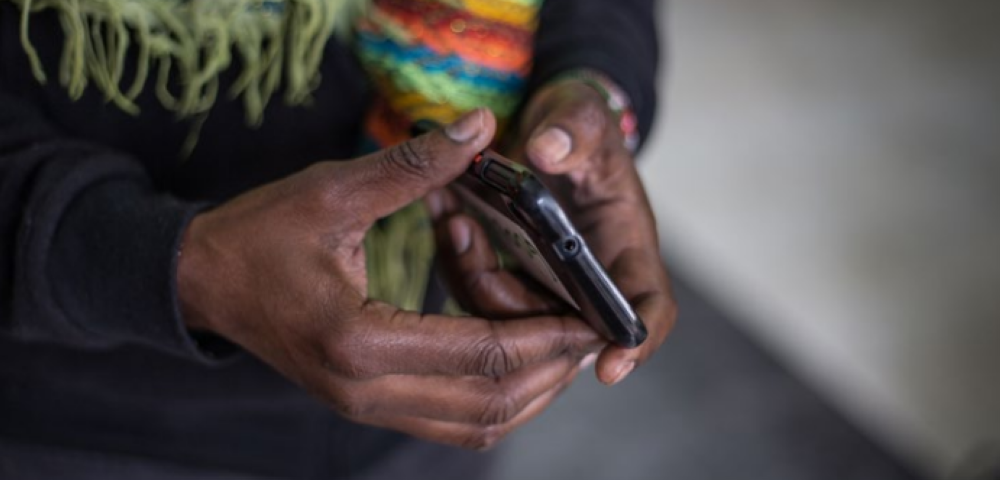

After Mahama refugee camp received high-quality 4G internet connections and more than 100 refugees acquired first-hand literacy skills on the digital world, they are excited about realizing their economic potential.
Since their flight from Burundi and the DRC and settling in Mahama refugee camp, in 2015, their ability to navigate the digital world had been limited due to limited access to phones and internet connectivity in the camp.
For seven years, Faisal Uwitonze, a Burundian refugee, has been living in Mahama refugee camp, in Kirehe District. He arrived at the camp aged 20, with his family, in 2016. Uwitonze is now a businessman running a small tech business in the camp that offers Irembo e-government services, audio-visual services, and also sells airtime.


Uwitonze's phone is vital.
"I can’t allow my phone to go off because I can lose business.”
He uses his phone to help run the business; uses it to establish partners and clients who consume his services.
"Customers call me when they have ceremonies. I started slowly, selling airtime on the phone, and until the start of the tech business, the biggest challenge has been slow internet connections in the camp.”
According to the refugees, efforts to access digital infrastructure and digital literacy mainly for refugees by bridging the digital divide in Mahama refugee camp have unlocked business opportunities for refugees, but there is also a need to increase digital penetration in the camp.
Thirty two-year-old Racheal Mukandayisenga said: "Access to devices is a major challenge for us. Many of us cannot afford smartphones or laptops, making it difficult for us to fully participate in the digital world.
"Even for those who have access to devices, affording data bundles hinders their online navigation. We need more training and support to develop our digital literacy and take advantage of the business opportunities that are available to us."
According to Reeh Brondum Emily, a Save the Children programme manager in charge of digital literacy, research conducted by the Ministry of Disaster Management and Refugee Affairs in partnership with UNHCR, Save the Children, and the Internet Society, on 200 refugees in the refugee camp revealed that women have especially been "experiencing difficulty accessing devices and also, a lack of skills has limited others to the digital world in Mahama refugee camp."
"We have bridged the gap between refugees and the private sector in accessing the devices and connected to free internet for one year using 5GB every month."
It is expected that by 2030, connecting all refugee camps with 4G internet will have been achieved.
"We have started seeing small businesses start up in the camp because of the rollout of internet connections and telephones to refugees, mainly for Irembo services. Previously, refugees had to access them outside the camp, but with this digital inclusivity, refugees will change their livelihoods using technology," said Andrew Vuganeza, the Mahama refugee camp leader.
So far, Mahama refugee camp is home to more than 60,000 refugees from neighboring countries, including Burundi, who have been displaced due to conflicts and violence. The provision of 4G internet in the camp has not only facilitated their access to vital services. It also opened up new opportunities for entrepreneurship and economic growth within the camp, as well as connecting them with the outside world.


